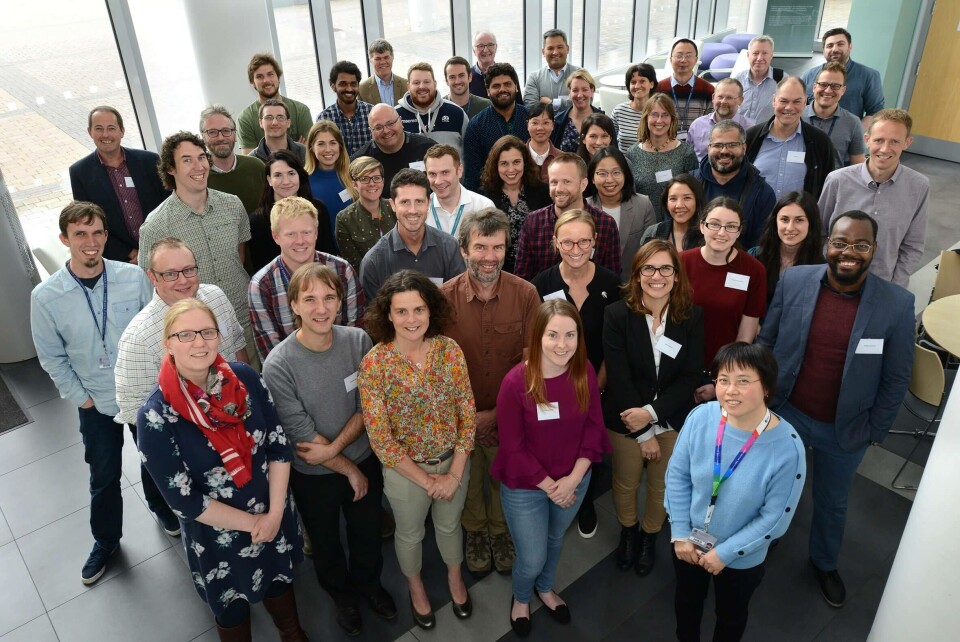
Industry buying in to value of genetics, say scientists
A symposium about the future role of genetics and genomics in aquaculture has been declared a major success by its organisers.
The Roslin Institute and the University of Edinburgh hosted the “Future outlook for genetic improvement in aquaculture” event that brought together more than 60 academics, industry and funder representatives.
The event focused on both shellfish and finfish breeding and coincided with a visit from the Cawthron Institute in New Zealand where successful mussel and oyster genetic improvement programmes are already under way.
Speakers included Dr Rolf Edvardsen from Norway’s Institute of Marine Research, who talked about the use of genome editing in Atlantic salmon, and how it can be used to promote sustainable aquaculture, for example limiting the threat of escapees via sterility.
Key production traits
Mowi scientist Dr Ashie Norris’s talk illustrated the breeding programme of her company, which features two rounds of selection, a first one in broodstock which includes many key production traits, and a second one in the multiplier which is much more focused on the traits of interest that particular year and location.
Other speakers included Dr Eduards Santos from the University of Exeter who talked about the potential of the epigenome - a multitude of chemical compounds that can tell the genome what to do - to condition aquaculture species.
Five early career speakers also gave short talks on a wide array of topics: Dr Katherine Adams (University of Edinburgh) on social sciences in aquaculture; Simao Zacarias (University of Stirling) on improving reproduction in Pacific white shrimp; Dr Sarah-Louise Selly (University of Stirling) on the development of genomic tools for cleaner fish; Dr Carola Dehler (University of Aberdeen) on the use of genome-editing to produce a cell line with an attenuated response to viral infection, and Dr Remi Gratacap (Roslin Institute) on how he is using genome editing to study resistance to infectious salmon anaemia virus (ISAV) in Atlantic salmon.
Disease resistance
Dr Tim Bean (Roslin) opened a session on bivalves with a talk about his work on Pacific oyster resistance to Ostreid Herpesvirus, and Dr Joanne Preston (University of Portsmouth) focused her talk on the restoration of flat oyster reefs in the UK.
Julien Vignier spoke about the new technologies Cawthron Institute is applying in New Zealand to enhancer oyster and mussel breeding, including state-of-the-art larval rearing systems and cryopreservation of gametes and larvae. His colleague Dr Nick King gave the audience a vision of the advanced state of Cawthron’s oyster breeding programme, which has clearly changed the breeding goals from a growth-focused plan to enhancing disease resistance in the last years and has resulted in significant industry buy in to selective breeding.
The symposium ended with an industry-led panel discussion chaired by Roslin’s Professor Ross Houston, with representatives from Benchmark Genetics, Mowi, Hendrix Genetics, Aquagen, the Cawthron Institute and the Scottish Aquaculture Innovation Centre (SAIC)
Exciting areas
The panel members highlighted the importance of understanding the genomic features behind the traits of interest to enable accurate selection and open the possibility of precise genome editing in the future, pending regulatory and societal changes.
When asked about epigenetics and microbiomes - the combined genetic material of the microorganisms in a particular environment - the panel agreed that these are exciting areas with potential for application in aquaculture but are at a much earlier stage in terms of application.
A common theme in the talks was the rapid development of genetics and breeding technologies, with increasing industry buy-in.
The event was sponsored by the Biotechnology and Biological Sciences Research Council (BBSRC) and held in collaboration with the Aquaculture Research Collaborative Hub UK (ARCH-UK).























































